Soccer
The Rise of Women’s Soccer: How the Sport is Evolving Globally

The Rise of Women’s Soccer
In recent years, the landscape of women’s soccer has undergone a remarkable transformation, evolving from a niche sport to a global phenomenon that captivates millions. This surge in popularity and recognition is a testament to the relentless dedication, skill, and passion of female soccer players worldwide.
Their journey—a blend of triumphs and challenges—sheds light on broader themes of gender equality, cultural shifts, and the ever-changing world of sports.
The Historical Context of Women’s Soccer
From Dusty Pitches to Primetime: A Historical Overview
Women’s soccer’s rise isn’t an overnight phenomenon. It’s a hard-fought victory etched in decades of grassroots activism, legislative battles, and the unwavering determination of countless players, coaches, and fans.
Early pioneers like Lily Parr and Martha Graham braved societal scorn and flimsy kit restrictions to blaze a trail, while the 1970s witnessed the birth of organized leagues and the fight for Title IX in the US, a landmark legislation mandating equal opportunities in education and athletics.
The 200th goal in club history belongs to Marta
— National Women’s Soccer League (@NWSL) April 13, 2024
The @ORLPride take the lead! pic.twitter.com/u0A3TMj7Kn
The FIFA Women’s World Cup, established in 1991, served as a game-changer. From humble beginnings in China, it’s morphed into a global spectacle, drawing billions of viewers and inspiring a generation of young athletes. The 2019 edition in France broke viewership records, showcasing the sport’s captivating blend of skill, drama, and sheer athleticism.
Breaking Barriers, Building Bridges: The Global Landscape
The beauty of women’s soccer lies in its global tapestry. No longer confined to traditional powerhouses like the US, Germany, and Brazil, the sport is flourishing in unexpected corners. African nations like Nigeria and Cameroon are sending shockwaves through tournaments, while Asian powerhouses like Japan and China are consistently challenging for top honors.
This isn’t just about national pride; it’s about breaking down cultural barriers and empowering women through the universal language of the beautiful game. In countries where female athletes traditionally face limitations, soccer is becoming a platform for self-expression, social mobility, and community building.
The Early Days and Struggles for Recognition
Women’s soccer, much like its male counterpart, has deep historical roots. However, the journey of women in this sport has been fraught with challenges, including societal stereotypes and institutional barriers.
This section delves into the early beginnings of women’s soccer, highlighting key milestones and the struggles faced by pioneering female athletes.
Milestones in Women’s Soccer History
Despite the hurdles, women’s soccer has seen numerous milestones that have propelled it forward. From the first unofficial women’s world cup in 1971 to the landmark events of the 1990s, these milestones have been pivotal in shaping the sport’s trajectory.
The Current State of Women’s Soccer
Global Expansion and Increasing Popularity
Today, women’s soccer enjoys unprecedented popularity. This section explores the factors contributing to its global expansion, including increased media coverage, investment in women’s leagues, and the role of international tournaments in attracting a broader audience.
The Impact of Role Models and Icons
Iconic players have played a significant role in popularizing women’s soccer. Figures like Mia Hamm, Marta, and Megan Rapinoe haven’t just excelled on the field; they’ve inspired generations and become advocates for change off the field.
Technological Advances and Their Impact
The advent of technology has revolutionized how women’s soccer is played, coached, and viewed. This part of the article examines the role of technology in enhancing training, strategy, and fan engagement.
Breaking Barriers and Challenging Norms
Addressing Gender Disparity in Soccer
Despite its growth, women’s soccer still grapples with issues of gender disparity, particularly in terms of pay equity and investment. This section investigates these challenges and the ongoing efforts to address them.
Cultural Impact and Societal Change
The rise of women’s soccer has had a profound impact on culture and society. This part highlights how the sport has become a platform for broader discussions on gender equality and inclusivity.
The Role of Grassroots Movements and Local Clubs
Grassroots movements and local clubs play a crucial role in nurturing talent and fostering a love for the game. This section explores their impact on the development of women’s soccer.
Looking to the Future
Emerging Trends and Future Prospects
What does the future hold for women’s soccer? This part forecasts emerging trends, potential growth areas, and the sport’s trajectory in the coming years.
The Continued Fight for Equality and Recognition
The battle for equality and recognition in women’s soccer is far from over. This final section emphasizes the ongoing efforts needed to ensure the sport’s sustainable growth and equal opportunities for women in soccer.
The Final Whistle: A Legacy in the Making
The rise of women’s soccer is a testament to the power of dreams, resilience, and the unstoppable force of athletic excellence. It’s a story still being written, with every nutmeg, every thunderous strike, every defiant roar on the pitch adding another chapter to its glorious legacy.
So, the next time you hear the roar of the crowd at a women’s soccer match, remember: this isn’t just a game; it’s a revolution in cleats.
Conclusion
The evolution of women’s soccer is more than just a sports story—it’s a narrative about perseverance, empowerment, and breaking barriers.
As the sport continues to grow globally, it carries with it the potential to further societal change and inspire the next generation of female athletes.
Facts Check
We hope you enjoyed this article… What are your thoughts?
Please feel free to share this article!
e strive to provide the latest valuable information for pet lovers with accuracy and fairness. If you would like to add to this post or advertise with us, don’t hesitate reach us.
Latest Sports News
Top 16 Fastest Soccer Players Ever: Discover the Speed Demons of the Game
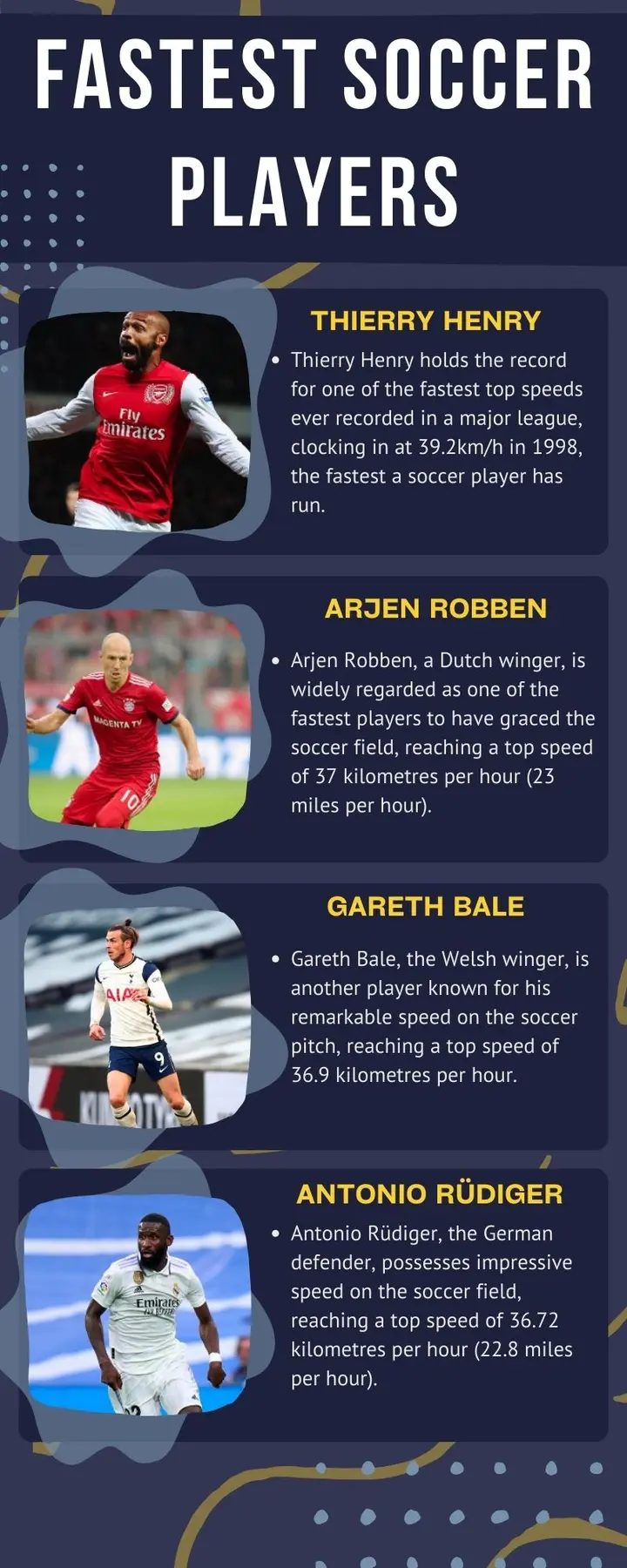
The quest for speed in soccer has always captivated fans and players. In the world of football, certain players are celebrated for their lightning-fast pace, setting remarkable speed records.
When we talk about the fastest soccer players ever, these elite athletes stand out for their extraordinary velocity and agility.
The 16 Fastest Soccer Players of All Time
Soccer history is filled with players who have demonstrated phenomenal speed on the field. Their incredible pace and technical skills have earned them legendary status.
Let’s dive into the list of the top 16 fastest soccer players and uncover who holds the title for the most blazing speed.
16. Cristiano Ronaldo – 33.95 km/h
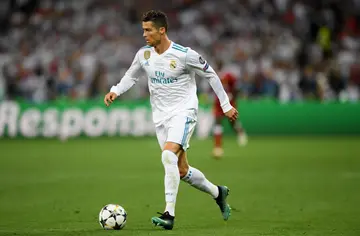
- Full name: Cristiano Ronaldo dos Santos Aveiro
- Date of birth: 5 February 1985
- Age: 39 years (as of 2024)
- Place of birth: Hospital Dr. Nélio Mendonça, Funchal, Portugal
Cristiano Ronaldo, a name synonymous with elite soccer, clocks in at a remarkable 33.95 km/h. Known for his explosive acceleration, Ronaldo has dazzled fans with his speed throughout his career with clubs like Manchester United and Real Madrid.
His ability to burst past defenders has made him one of the top fastest soccer players ever.
15. Antonio Valencia – 35.1 km/h
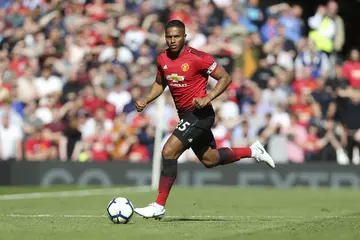
- Full name: Luis Antonio Valencia Mosquera
- Date of birth: 4 August 1985
- Age: 38 years (as of 2024)
- Place of birth: Nueva Loja, Ecuador
Antonio Valencia, the Ecuadorian winger, has been a notable figure in soccer for his incredible speed. With a top speed of 35.1 km/h, Valencia’s sprinting ability has been a crucial asset in both offensive and defensive situations.
His speed was particularly evident during his time at Manchester United, where he became renowned for his rapid runs down the wing.
14. Leroy Sané – 35.9 km/h
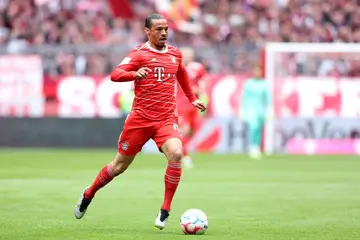
- Full name: Leroy Aziz Sané
- Date of birth: 11 January 1996
- Age: 28 years (as of 2024)
- Place of birth: Essen, Germany
Leroy Sané’s 35.9 km/h speed is a testament to his exceptional agility and acceleration. The German winger, known for his time at FC Bayern München, consistently leaves defenders in the dust.
His rapid pace allows him to create significant scoring opportunities, making him one of the most exciting players to watch.
13. Kylian Mbappé – 36 km/h

- Full name: Kylian Mbappé
- Date of birth: 20 December 1998
- Age: 25 years (as of 2024)
- Place of birth: 19th arrondissement, Paris, France
The French sensation Kylian Mbappé has taken the soccer world by storm with his astounding 36 km/h speed. Known for his blistering acceleration, Mbappé can outpace virtually any defender.
His ability to maintain such high speed over distances is a key factor in his success and reputation as one of the top fastest soccer players.
12. Ronaldo Nazário – 36.2 km/h
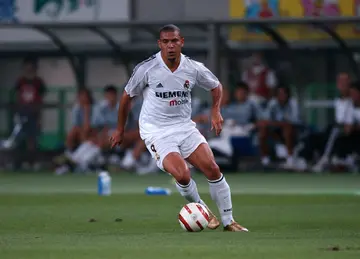
- Full name: Ronaldo Luís Nazário de Lima
- Date of birth: 18 September 1976
- Age: 47 years (as of 2024)
- Place of birth: Rio de Janeiro, State of Rio de Janeiro, Brazil
Ronaldo Nazário, often referred to as “El Fenomeno,” was renowned for his speed and skill. With a top speed of 36.2 km/h, the Brazilian legend’s rapid bursts left defenders struggling to keep up.
His exceptional speed, combined with his technical prowess, made him one of the most formidable attackers of his era.
11. Mohamed Salah – 36.64 km/h
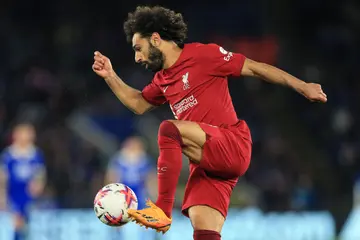
- Full name: Mohamed Salah Hamed Mahrous Ghaly
- Date of birth: 15 June 1992
- Age: 31 years (as of 2024)
- Place of birth: Nagrig, Egypt
Mohamed Salah, the Egyptian forward for Liverpool, has reached an impressive speed of 36.64 km/h. His electrifying pace is a vital component of his attacking game, allowing him to outrun defenders and capitalize on scoring opportunities.
Salah’s speed and technical ability make him a constant threat on the field.
10. Antonio Rüdiger – 36.72 km/h
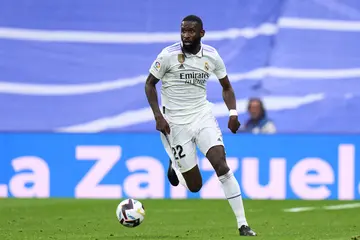
- Full name: Antonio Rüdiger
- Date of birth: 3 March 1993
- Age: 31 years (as of 2024)
- Place of birth: Berlin, Germany
Antonio Rüdiger, a German defender, showcases his impressive speed with a top speed of 36.72 km/h. His ability to accelerate quickly and cover ground efficiently has made him a valuable player for both Real Madrid and the German national team.
Rüdiger’s speed enhances his defensive capabilities, making him a key asset in crucial situations.
9. Dara O’Shea – 36.73 km/h

- Full name: Dara Joseph O’Shea
- Date of birth:4 March 1999
- Age: 25 years (as of 2024)
- Place of birth: Dublin, Ireland
Dara O’Shea, a defender for Burnley and the Republic of Ireland, boasts a top speed of 36.73 km/h. His speed allows him to keep pace with some of the Premier League’s most dynamic attackers.
O’Shea’s quickness and defensive skills have established him as a rising star in soccer.
8. Dominik Szoboszlai – 36.76 km/h
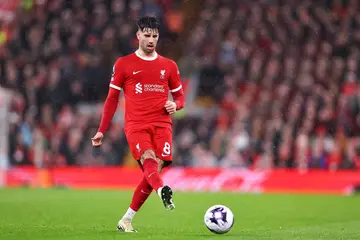
- Full name: Dominik Szoboszlai
- Date of birth: 25 October 2000
- Age: 23 years (as of 2024)
- Place of birth: Székesfehérvár, Hungary
Hungarian midfielder Dominik Szoboszlai reaches a top speed of 36.76 km/h. Playing for Liverpool and captaining the Hungarian national team, Szoboszlai’s speed is a significant asset in his versatile midfield role.
His quick bursts and agility are critical to his performance on the field.
7. Pedro Neto – 36.86 km/h
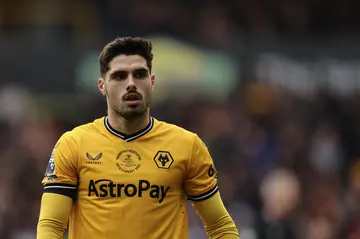
- Full name: Pedro Lomba Neto
- Date of birth: 9 March 2000
- Age: 24 years (as of 2024)
- Place of birth: Viana do Castelo, Portugal
Pedro Neto, the Portuguese winger for Wolverhampton Wanderers, has a top speed of 36.86 km/h.
Known for his rapid pace and dynamic play, Neto’s speed is a key factor in his ability to disrupt defenses and create scoring chances.
6. Gareth Bale – 36.9 km/h
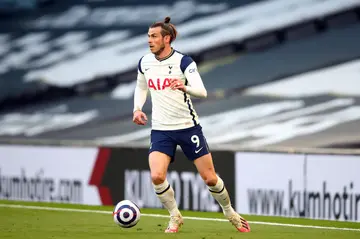
- Full name: Gareth Frank Bale
- Date of birth: 16 July 1989
- Age: 34 years (as of 2024)
- Place of birth: Cardiff, United Kingdom
Gareth Bale, the Welsh winger, achieved a top speed of 36.9 km/h. His speed has been a defining feature of his career, particularly during his time with Tottenham Hotspur and Real Madrid.
Bale’s explosive acceleration and rapid runs make him one of the fastest soccer players in history.
5. Chiedozie Ogbene – 36.93 km/h
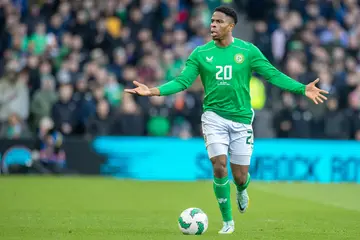
- Full name: Chiedozie Somkelechukwu Ogbene
- Date of birth: 1 May 1997
- Age: 26 years (as of 2024)
- Place of birth: Lagos, Nigeria
Chiedozie Ogbene, known for his impressive 36.93 km/h speed, has made a name for himself with his blistering pace.
His ability to cover ground quickly and maintain high velocity makes him a standout player on the field.
4. Arjen Robben – 37 km/h
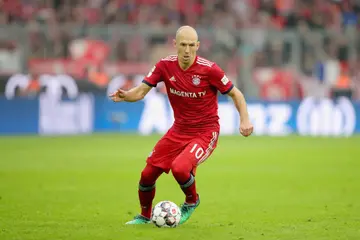
- Full name: Arjen Robben
- Date of birth: 23 January 1984
- Age: 40 years (as of 2024)
- Place of birth: Bedum, Netherlands
Arjen Robben, the Dutch winger, reached a remarkable top speed of 37 km/h. His incredible pace, combined with his technical skills, allowed him to be a constant threat to defenders.
Robben’s speed was a key factor in his success with clubs like Bayern Munich.
3. Kyle Walker – 37.31 km/h
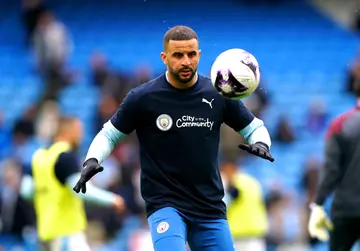
- Full name: Kyle Andrew Walker
- Date of birth: 28 May 1990
- Age: 33 years (as of 2024)
- Place of birth: Sheffield, United Kingdom
Kyle Walker, the English right-back, is known for his top speed of 37.31 km/h.
His ability to cover ground quickly and his defensive prowess make him a valuable player for both Manchester City and the England national team.
2. Micky van de Ven – 37.38 km/h
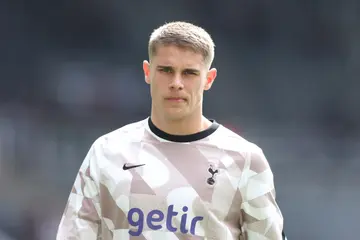
- Full name: Micky van de Ven
- Date of birth: 19 April 2001
- Age: 22 years (as of 2024)
- Place of birth: Wormer, Netherlands
Micky van de Ven, a Dutch defender, achieves an impressive speed of 37.38 km/h. His rapid pace and defensive skills make him a standout player in the sport.
Van de Ven’s speed is a significant asset in his role as a defender.
1. Thierry Henry – 39.2 km/h
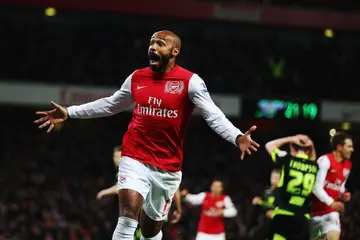
- Full name: Thierry Daniel Henry
- Date of birth: 17 August 1977
- Age: 46 years (as of 2024)
- Place of birth: Les Ulis, France
Thierry Henry, the French legend, holds the top spot with a phenomenal 39.2 km/h speed. Known for his explosive acceleration and incredible pace, Henry’s speed was a key factor in his success with Arsenal and other top clubs.
His ability to outpace defenders and create scoring opportunities solidifies his place as the fastest soccer player ever.
Conclusion
In the world of soccer, speed is a game-changer. The fastest soccer players not only entertain us with their breathtaking pace but also redefine the dynamics of the game.
From Cristiano Ronaldo’s explosive runs to Thierry Henry’s unmatched speed, these athletes have left an indelible mark on soccer history with their incredible velocity.
FAQs
1. Who is the fastest soccer player ever?
Thierry Henry holds the title of the fastest soccer player ever with a top speed of 39.2 km/h.
2. How fast is Kylian Mbappé?
Kylian Mbappé reaches a top speed of 36 km/h.
3. What is Cristiano Ronaldo’s top speed?
Cristiano Ronaldo’s top speed is 33.95 km/h.
Blog
“Real Madrid 2024-25: Mbappe’s Arrival Heralds New Era of Galácticos”
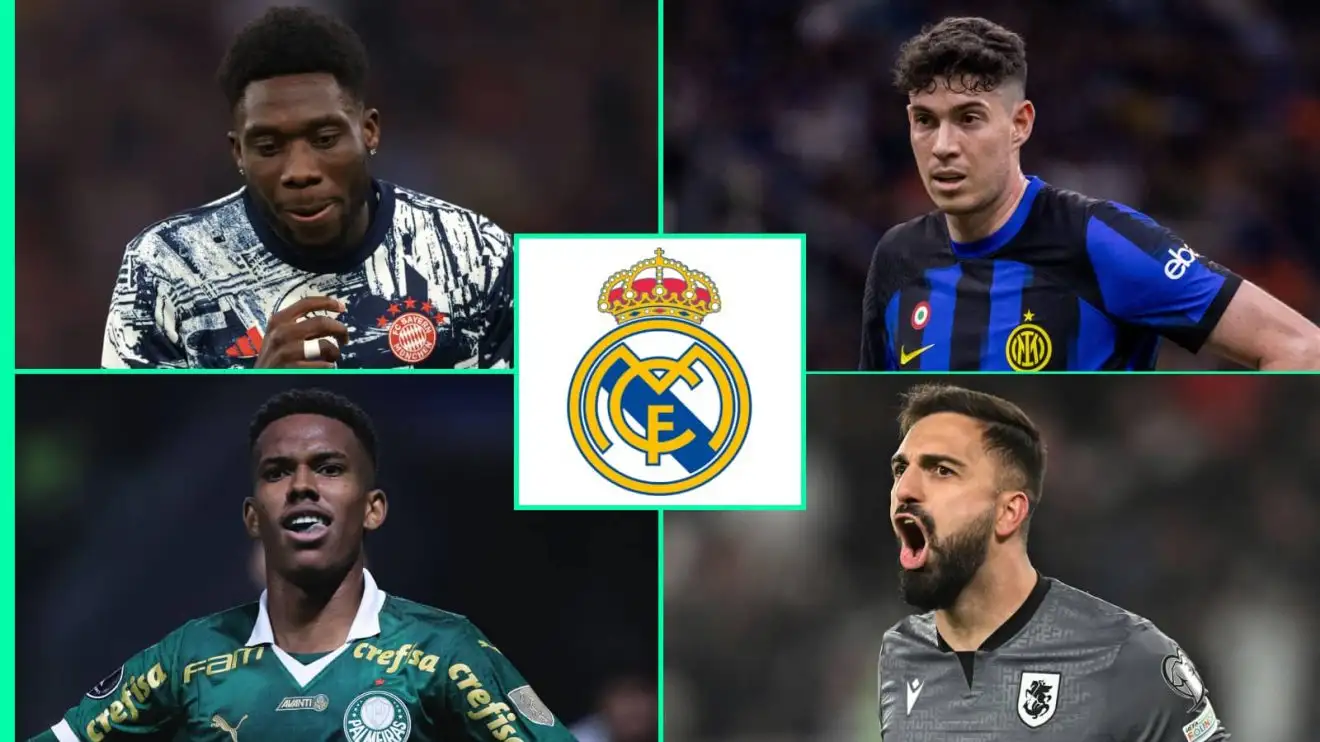
Real Madrid, the reigning European and Spanish champions, are poised to reach new heights in the 2024-25 season with the long-awaited arrival of French superstar Kylian Mbappe. The addition of the world-class forward to an already formidable squad has sent shockwaves through the footballing world and ignited fervent excitement among the Madridistas.
Carlo Ancelotti’s men, fresh off a historic Champions League and La Liga double, have somehow managed to strengthen their ranks further. The acquisition of Mbappe, widely regarded as one of the top three players globally, promises to elevate Los Blancos to unprecedented levels of dominance.
The Madrid regional government has change its income tax regulation to ease Mbappé’s arrival.https://t.co/XikmSU8qNh
— Sowhat🚻 (@LntLopez) August 15, 2024
While the integration of such a high-profile player may present initial challenges, the wealth of young talent already thriving at the Santiago Bernabeu provides a solid foundation for success. The midfield trio of Federico Valverde, Aurelien Tchouameni, and Eduardo Camavinga demonstrated remarkable growth last season and are primed to reach new heights in the coming campaign.
Ancelotti, the tactical maestro who recently extended his contract, appears to be the perfect orchestrator for this evolving side. His experience and adaptability will be crucial in harnessing the full potential of this star-studded lineup.
The mood in Madrid is electric, with fans and pundits alike anticipating a potential return to the ‘Galácticos‘ era. However, the team’s recent success suggests that this incarnation of Real Madrid may surpass even those legendary squads of the past.
As the new season approaches, all eyes will be on the Bernabeu to see if this powerhouse can live up to the immense expectations. With a blend of world-class talent, youthful exuberance, and seasoned leadership, Real Madrid seems poised to redefine footballing excellence in the 2024-25 season.
Source: CNNhttps://www.cnn.com/sports/
Soccer
Zidane’s Surprising Pick for Football’s Greatest Reignites GOAT Debate”
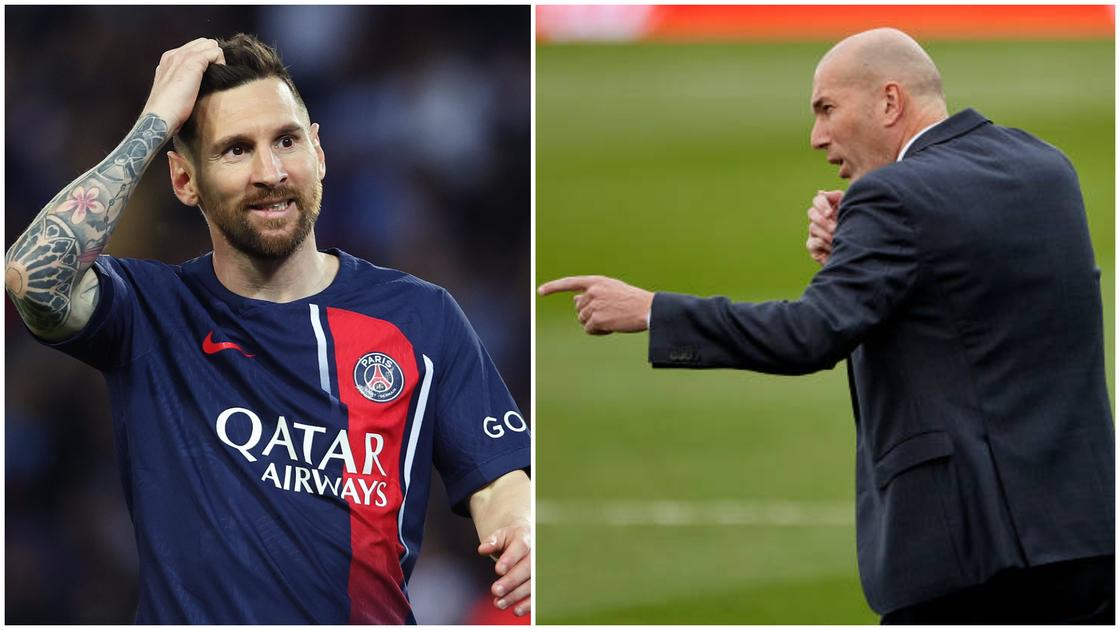
In a revelation that has sent shockwaves through the football world, French legend Zinedine Zidane reportedly named a player he considers superior to both himself and Lionel Messi, potentially reshaping the longstanding ‘Greatest of All Time’ (GOAT) debate.
The insight comes from former Manchester United defender Patrice Evra, who shared a private conversation with Zidane that has now thrust the GOAT discussion back into the spotlight.
While Zidane’s exact choice remains undisclosed, the mere suggestion that the 1998 World Cup winner believes there’s a player surpassing both his own legendary status and that of Messi has ignited fierce speculation and debate among fans and pundits alike.
“Zidane’s perspective carries immense weight,” says football historian Dr. Emma Thompson. “His achievements on the pitch and success as a manager give him a unique vantage point in assessing footballing greatness.”
I wonder why they say Platini is better than Zidane let me think.. Zidane single handedly won France a World Cup and a Euros and for me is the best player I’ve ever seen for over a decade and is probably in the top 5 players of all time. Did Platini win France a World Cup?
Via… pic.twitter.com/S9lyIaLatL
— Stretford Post (@StretfordPost) June 7, 2023
The GOAT debate has long been a contentious topic in football circles, with passionate arguments made for players across different eras. Pele, Diego Maradona, Cristiano Ronaldo, and Messi are often at the forefront of these discussions.
As the football community eagerly awaits more details or potential confirmation from Zidane himself, this revelation serves as a reminder of the subjective nature of greatness in sport and the enduring fascination with comparing legends across generations.
The debate rages on, with Zidane’s cryptic endorsement now a new focal point in the never-ending quest to crown football’s ultimate GOAT.
Source: www.bbc.com/sport.
-

 Blog7 months ago
Blog7 months agoTop 10 Sports Management Programs: Unlocking the Secrets
-

 Blog5 months ago
Blog5 months agoShould the Lakers Lose On Purpose? A Strategic Look at the NBA Play-In Game
-

 Sports7 months ago
Sports7 months agoTop 12 Highest-Paid Soccer Players in the World + Income!
-

 Sports7 months ago
Sports7 months agoWhat Game is Called the “Sport of Kings”? Unveiling the History and Rules
-

 Sports7 months ago
Sports7 months agoHow to Play Badminton + Badminton Rules EXPLAINED!
-
![Top 13 Serie A Scorers Of All Time! [+ History]](https://sportcasino.info/wp-content/uploads/2024/03/Screenshot-2024-04-13-at-10.40.34 PM-400x240.png)
![Top 13 Serie A Scorers Of All Time! [+ History]](https://sportcasino.info/wp-content/uploads/2024/03/Screenshot-2024-04-13-at-10.40.34 PM-80x80.png) Sports6 months ago
Sports6 months agoTop 12 Serie A Scorers Of All Time! [+ History]
-

 golf4 months ago
golf4 months agoHow Much Does the Winner of the 2024 PGA Championship Get?
-

 Rules of Sport7 months ago
Rules of Sport7 months agoAmerican Football Rules: A Comprehensive Guide + 10 Tips






